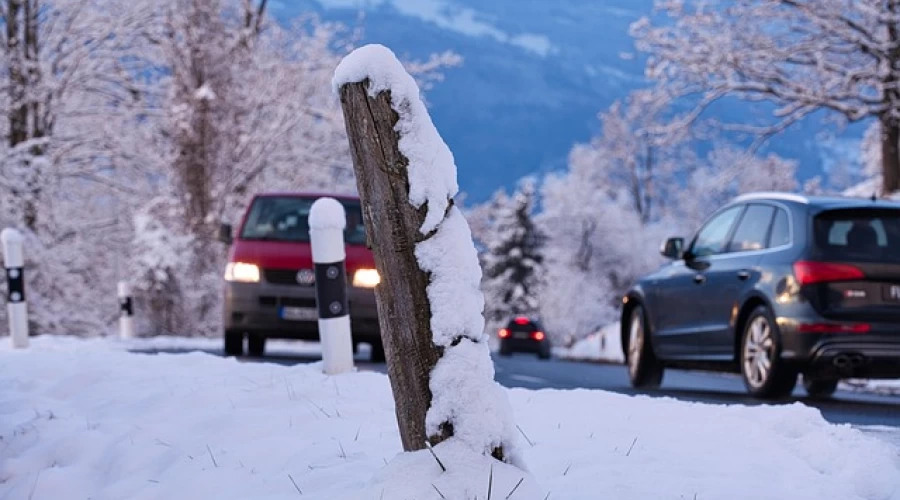Cold Temperatures
- Risk Level: Very High
- Risk Ref. #: NRR50
- Likelihood/Impact: 4/4
- Download the Risk Register

Introduction
Every year as temperatures drop over the winter period, cold weather affects health and wellbeing.
Physical hazards such as snow and ice increase the likelihood of falls and injuries. Exposure to cold temperatures can increase blood pressure, suppress the immune system and make fighting infection more difficult. These factors add up to cold-related deaths being the most significant weather-related source of mortality in England.
Interesting Fact
The coldest temperature ever recorded in England was during the Winter of 1982 in Edgmond, near Newport, Shropshire when it dropped to -26.1C on 10th January.
Local Risk Rating
Cold Temperatures is assessed as Very High risk on our Preparing for an Emergency Booklet. Take a look at the table shown in What is Risk? to understand why.
- Impact: Significant (4)
- Likelihood: Medium High (4)
- Rating: Very High
History
An estimated 28,300 excess winter deaths occurred in England and Wales in winter 2019 to 2020. Excess winter deaths are the observed total number of deaths in winter (December to March) compared to the average of the number of deaths over the rest of the year. Excess deaths are not just deaths of those who would have died anyway in the next few weeks or months due to illness or old age. There is strong evidence that some of these winter deaths are indeed ‘extra’ and are related to cold temperatures and living in cold homes as well as infectious diseases such as influenza. In the recent past, the rate of winter deaths in England was twice the rate observed in some northern European countries, such as Finland. Even with climate change, cold related deaths will continue to represent the biggest weather-related cause of mortality.
Although there are several factors contributing to winter illness and death, in many cases simple preventative action could avoid many of the deaths, illnesses and injuries associated with the cold. Many of these measures need to be planned and undertaken in advance of cold weather.
Related News

Wiltshire Libraries offer warm and welcoming spaces this winter
1m read
Wiltshire Libraries offer warm and welcoming spaces this winter

Back on the road: Wiltshire's gritters return ahead of winter weather
1m read
Back on the road: Wiltshire's gritters return ahead of winter weather
What are we doing about it as an LRF?
The LRF has a Severe Weather sub-group that considers winter preparedness, ensuring that all agencies have arrangements in place to respond to cold weather. For example, both councils ensure that their gritting fleet is ready for deployment and there are sufficient salt stocks available. However, they also look at other ways of supporting communities with the cost of living and the pressures of heating bills and providing practical support such as identified warm spaces throughout the county.
Wiltshire Council: Wiltshire Council warm spaces - Wiltshire Council
Swindon Council: 10 Warm and Welcome Spaces now open in Swindon in time for the winter | Swindon Borough Council
Helpful advice can also be found at Citizens Advice: citizensadvicewiltshire.org.uk
Tips to help save energy can also be found here: Quick tips to save energy at home - Energy Saving Trust
The Severe Weather sub group also enables multi-agency planning across the health sector in accordance with cold weather plan for England produced by the UKHSA.
The cold weather plan for England 2022 to 2023 (publishing.service.gov.uk)
UKHSA provides a helpful blog providing guidance and tips that can be found at: https://ukhsa.blog.gov.uk/2021/10/28/responding-to-the-challenge-of-cold-weather-and-winter/
What can you do (as a an individual or community)?
Plenty of advice is available to the public as follows:
UKHSA and the Met Office work together in providing this information for WSLRF:
Cold Weather Alert Service – see the following Met Office webpages:
https://www.metoffice.gov.uk/weather/out-of-season/cold-weather-alert
https://wwwpre.metoffice.gov.uk/weather/warnings-and-advice/seasonal-advice/cold-weather-alerts
WeatherReady and Weather Advice:
WeatherReady News Release in October 2022 https://www.metoffice.gov.uk/about-us/press-office/news/weather-and-climate/2022/are-you-weatherready
https://www.metoffice.gov.uk/weather/warnings-and-advice/weatherready/about-weatherready
https://www.metoffice.gov.uk/weather/warnings-and-advice/seasonal-advice
NSWWS (National Severe Weather Warning Service)
https://www.metoffice.gov.uk/weather/guides/warnings
Met Office Community Resilience
Downloads
Cold Temperatures Risk
Cold Temperatures Risk


